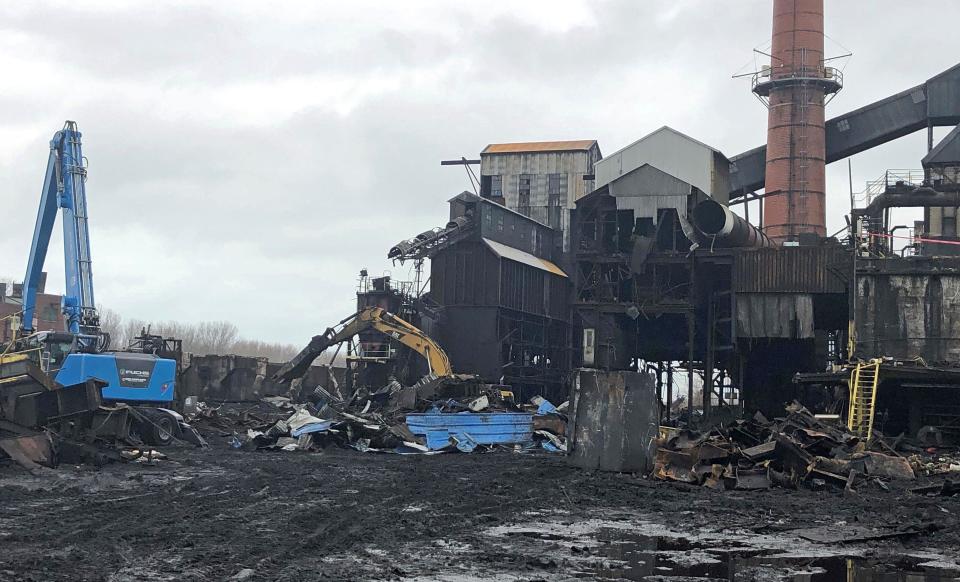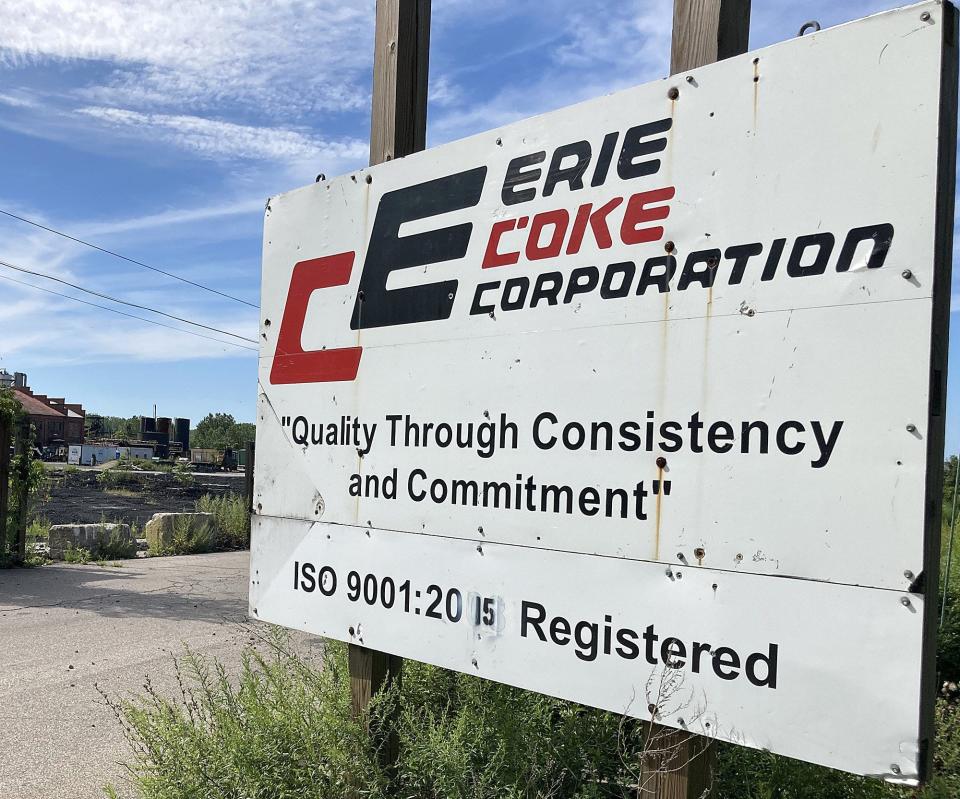Erie Coke, ex-plant chief charged with violating Clean Air Act, tampering with monitors
The former Erie Coke Corp. and its former superintendent have been indicted on federal criminal charges that they violated the Clean Air Act and other laws regulating air pollution.
The indictment was returned in U.S. District Court in Erie on Tuesday and unsealed on Thursday. The U.S. Attorney's Office for the Western District of Pennsylvania also announced the indictment on Thursday.
The eight-count indictment names Erie Coke as a corporation and one individual defendant, Anthony Nearhoof, 41, of Pittsburgh, whom the indictment describes as the plant's last superintendent.
Erie Coke, located at the foot of East Avenue in Erie, closed in December 2019. The property is the site of a government-funded environmental cleanup.
The indictment alleges the company and Nearhoof conspired to violate the Clean Air Act for four years, ending in December 2019.
The defendants are also accused of tampering with measurements on heating systems that emitted contaminants and pollutants into the air, the U.S. Attorney's Office said.

Erie Coke indictment refers to 'Co-Conspirator A'
The indictment describes Nearhoof as a "responsible corporate officer" and an "operator" of Erie Coke under terms defined in the Clean Air Act. Nearhoof is accused of directing other plant supervisors and foremen to vent combustion gases directly into the air to avoid the plant’s environmental monitoring system, the U.S. Attorney's Office said.
Also involved in the conspiracy, according to the indictment, was an individual identified only as "Co-Conspirator A." That person was a supervisor at the plant and reported to Nearhoof, according to the indictment.
The indictment alleges that Nearhoof, Co-Conspirator A and others improperly bypassed Erie Coke's environmental monitoring systems to minimize the detection of air-quality violations; "reduce the likelihood of enforcement actions by state and federal regulators"; avoid the cost of repairs; and "maximize ... revenues and profits by running the plant as much as possible."
U.S. attorney, EPA official comment on Erie Coke case
The U.S. Environmental Protection Agency led the investigation that resulted in the indictment. Prosecuting the case are assistant U.S. attorneys with the Pittsburgh-based U.S. Attorney's Office for the Western District of Pennsylvania. U.S. District Judge Susan Paradise Baxter, seated in Erie, is assigned the case.
"It is important to protect our community from environmental health hazards and to ensure equal access to a healthy environment in which to live, learn and work, Cindy K. Chung, the U.S. attorney for the Western District of Pennsylvania, said in a statement. "This indictment demonstrates our ongoing commitment to securing environmental justice by holding Erie Coke Corporation and its management responsible for violations of laws meant to protect the environment and the community."
The "indictment holds Erie Coke Corporation and its management responsible for covering up and lying to federal regulators and the public about their discharges," Jennifer Lynn, special agent in charge for the EPA's mid-central area branch, said in a statement. "Through thorough investigative efforts by EPA and its state partner, we were able to uncover the fraudulent scheme."
A conviction on the charge of violating the Clean Air Act would lead to a sentence of no more than five years in federal prison and a $250,000 fine, according to a memorandum the U.S. Attorney's Office filed with the indictment.
Nearhoof pleaded not guilty at his arraignment on Thursday morning and was released on an unsecured bond of $10,000, according to court records. Erie Coke is scheduled to be arraigned as a corporate defendant on Dec. 5.

Erie Coke had tangled with regulators for years
The indictment caps a long history of Erie Coke tangling with regulators over the operations of the plant. The plant made coke by heating coal in batteries of ovens to burn off impurities and create a fuel source that is used in a variety of industries, including steel mills, according to the indictment.
The closing of the plant, in December 2019, ended a protracted legal battle between the company and the state Department of Environmental Protection, which announced in July 2019 that it would not renew the plant’s Title V operating permit because of persistent violations of environmental rules.
The company appealed to the state Environmental Hearing Board and won a temporary reprieve in August 2019, when Environmental Hearing Board Judge Steven C. Beckman ruled the plant could continue operating, under certain conditions, while the appeal proceeded.
But the company ended operations at the plant before it had the chance to make its case. Erie Coke announced it would shut down the plant on Dec. 19, 2019, after repeatedly failing to comply with the city of Erie’s requirements for wastewater discharge.
After years of violations, the city in December 2019 ordered Erie Coke to stop sending wastewater through the city’s sanitary sewer system. Erie Coke leaders chose to shut down the plant when they could not provide a date by which the company could bring its onsite wastewater treatment system into compliance with the city’s requirements.
The sudden shutdown left nearly 150 people out of work.
While the plant was open, according to the indictment, Nearhoof, the superintendent, led the conspiracy to have the plant circumvent environmental rules. Among other things, the indictment alleges, Nearhoof "directed, instructed and pressured employees, including Co-Conspirator A, to open coke oven flues to vent emissions in a manner that bypassed" the environmental monitoring systems.
"Such directives," the indictment alleges, "occurred via personal directives, by radio to workers on the batteries (of ovens) and sometimes in writing in a log book used by battery foreman to convey information from shift to shift."
Contact Ed Palattella at epalattella@timesnews.com. Follow him on Twitter @ETNpalattella.
This article originally appeared on Erie Times-News: Erie Coke, ex-plant chief indicted on charges of violating Clean Air Act

